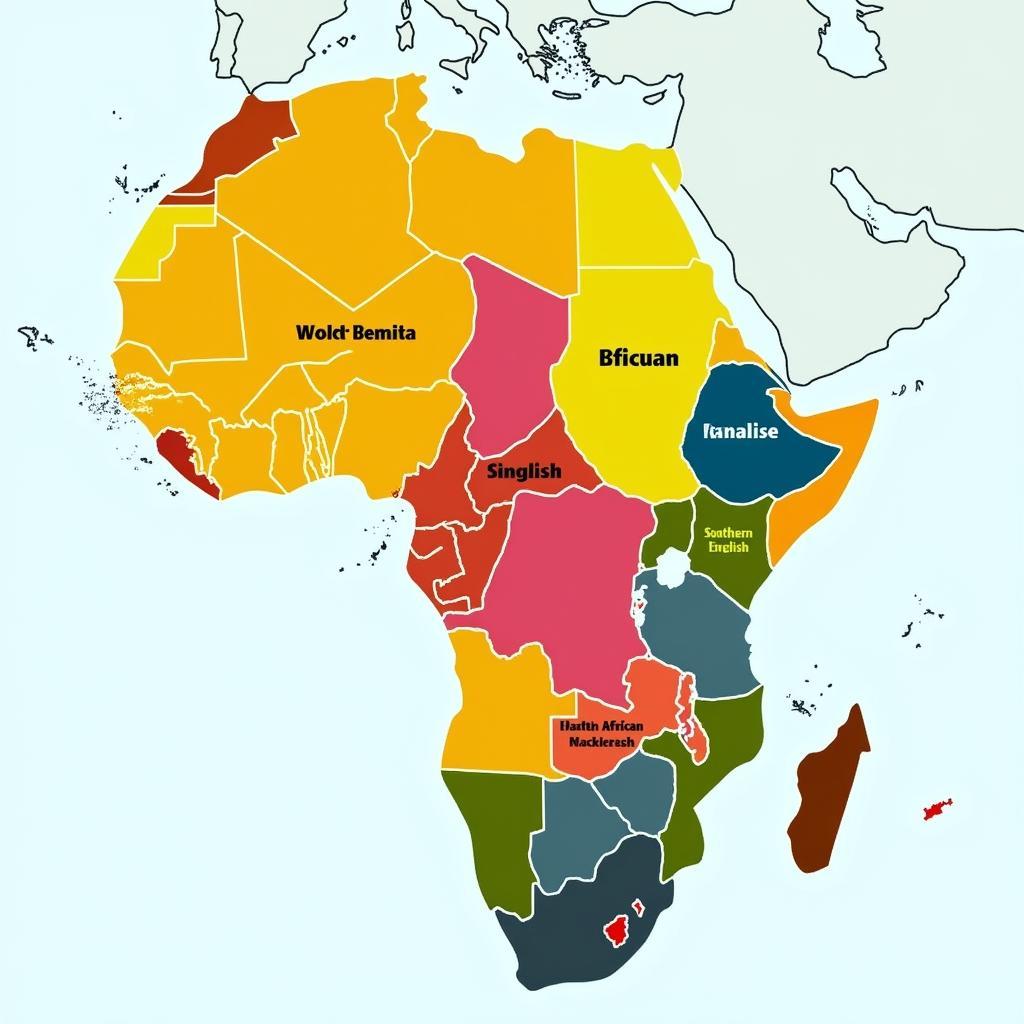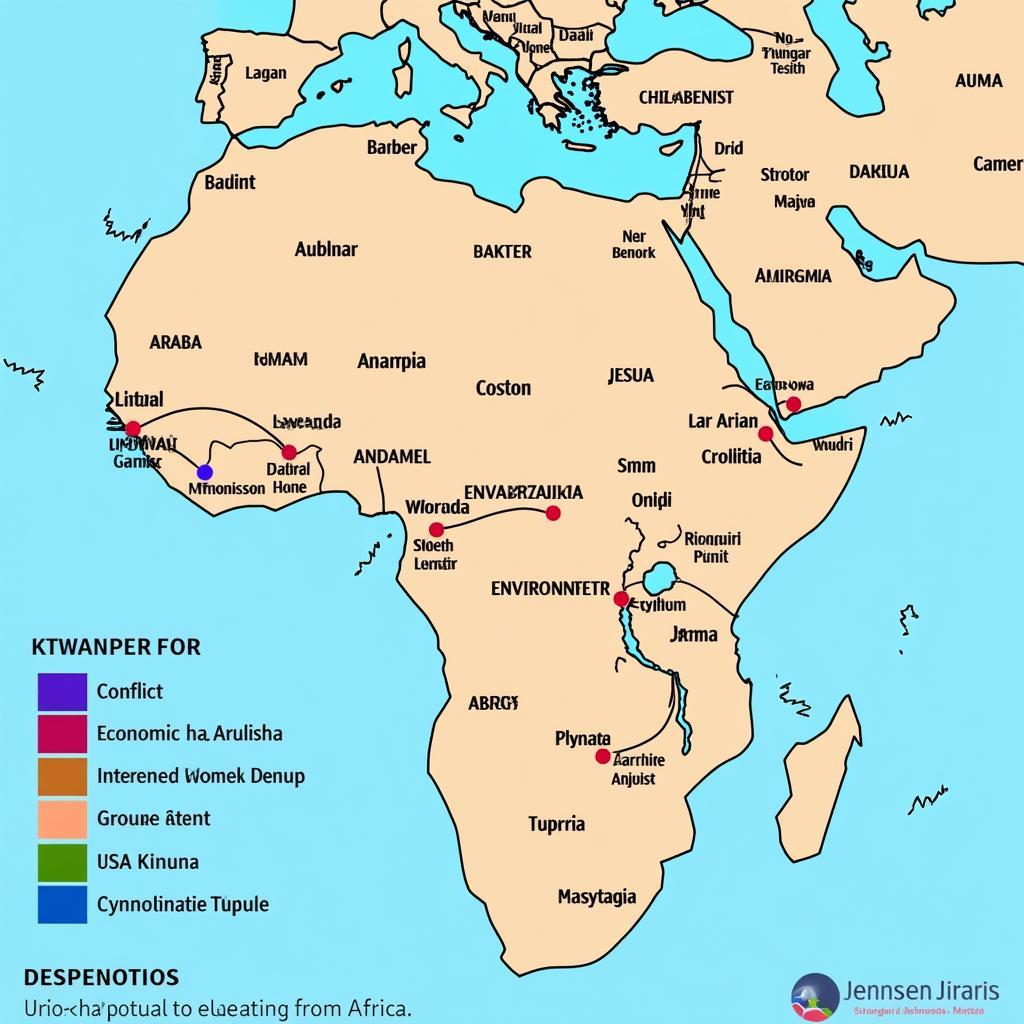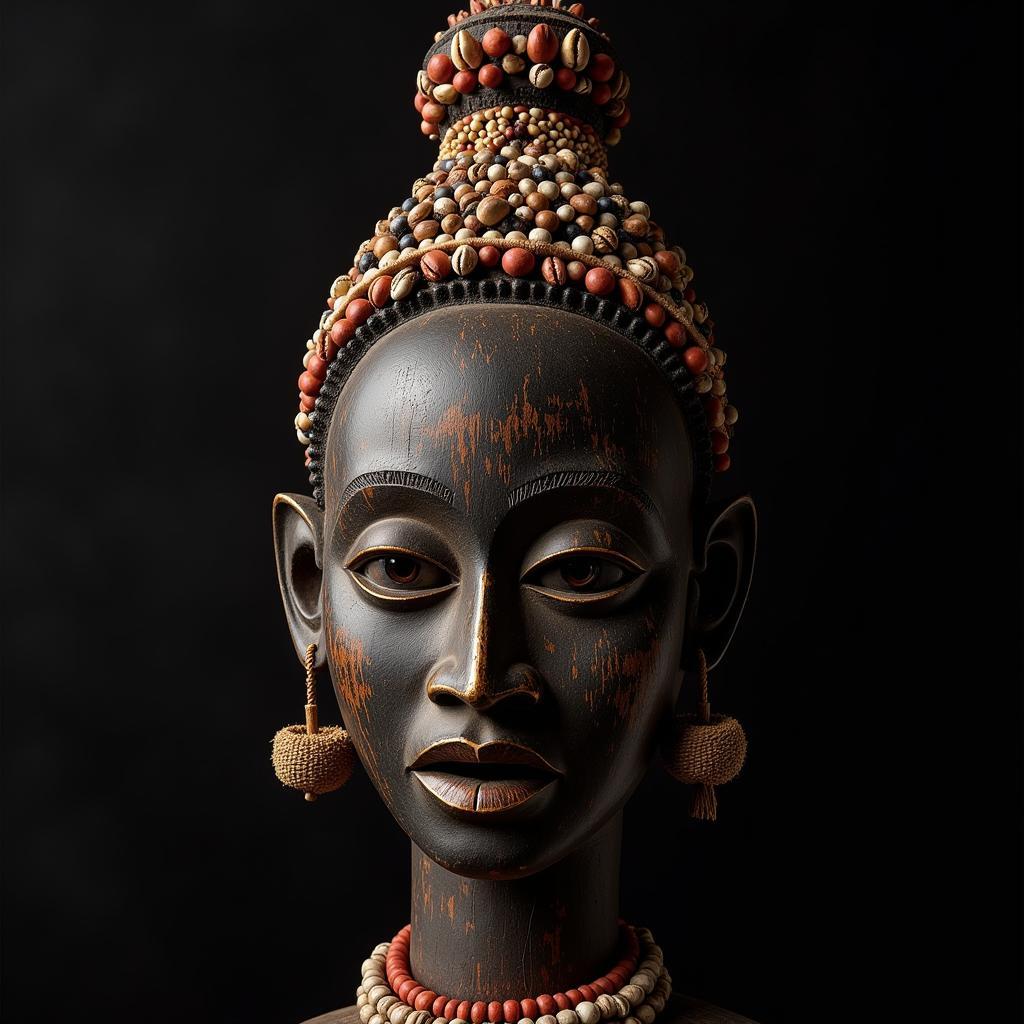Exploring the Vibrant World of African English
African English is more than just a language; it’s a vibrant tapestry woven from diverse cultural threads, reflecting the rich history and dynamic present of the African continent. From bustling marketplaces to lively storytelling traditions, African English has evolved into a distinct and powerful form of communication. This article delves into the fascinating world of African English, exploring its unique characteristics, regional variations, and its growing influence on the global stage.
After colonization, English took root across the continent, intertwining with existing languages and cultural nuances. This fusion gave rise to a spectrum of African English varieties, each reflecting the unique linguistic landscape of its region. For some, learning African English opens doors to education and economic opportunities, connecting them to a wider world. For others, it serves as a bridge between communities, fostering understanding and collaboration. Check out this African English wiki for a deeper dive into its multifaceted nature.
The Evolution of African English: A Historical Perspective
African English has a complex and often overlooked history, deeply entwined with the continent’s colonial past. The arrival of English in Africa began with trade and missionary activities, gradually establishing itself as the language of administration and education. This process, while often fraught with challenges, ultimately led to the emergence of distinct African English varieties. These varieties are not simply deviations from standard British English but rather unique linguistic systems, shaped by the diverse languages and cultures of the African continent.
Regional Variations: A Tapestry of Languages
From West African Pidgin English to the distinctive accents of East Africa, African English encompasses a rich tapestry of regional variations. These variations aren’t just about pronunciation but also involve unique grammatical structures, vocabulary, and even stylistic choices. For example, while Nigerian English might be characterized by its tonal inflections and proverbs, Kenyan English may incorporate Swahili loanwords and distinct rhythmic patterns. This linguistic diversity makes African English a dynamic and ever-evolving language. Understanding the nuances of these regional variations is key to appreciating the depth and complexity of African English communication. You can find talented African English voice over artist who can showcase these unique variations.
 African English Map Showing Regional Variations
African English Map Showing Regional Variations
What is the role of African English in literature and the arts?
African English has become a powerful tool for artistic expression, giving voice to African stories and perspectives. Authors like Chinua Achebe and Chimamanda Ngozi Adichie have captivated global audiences with their compelling narratives written in African English. This literary movement not only celebrates African culture but also challenges traditional notions of English literature. Similarly, musicians and playwrights are increasingly using African English in their creative works, further enriching the cultural landscape.
How is African English changing and adapting in the digital age?
The digital age has ushered in a new era for African English, creating exciting opportunities for communication and connection. Social media platforms, online forums, and digital publishing are amplifying African voices and promoting the use of African English in new and innovative ways. This online presence is not only fostering a sense of community but also contributing to the evolution of the language itself. New slang, abbreviations, and online linguistic conventions are constantly emerging, reflecting the dynamic nature of African English in the digital world. Need African English voice-over translation? This link provides valuable resources for understanding and accessing translation services tailored to African English varieties.
Dr. Adebayo Adefuye, a renowned linguist specializing in African languages, shares this insight: “African English is not a monolithic entity; it’s a dynamic ecosystem of languages, constantly adapting and evolving in response to social and cultural changes.” This adaptability is a testament to the resilience and creativity of African language communities. You can learn about specific variations by exploring resources like African A English.
The Future of African English: A Global Language in the Making?
African English is increasingly gaining recognition on the global stage, challenging traditional notions of what constitutes “standard” English. As the African continent continues to rise in prominence, so too will its linguistic influence. From international business to academic discourse, African English is slowly but surely carving out its own space in the global linguistic landscape. This growing influence presents both opportunities and challenges, requiring a nuanced understanding of the diverse linguistic landscape of African English. You might find an African English grammar book PDF useful for further study.
In conclusion, African English is more than just a language; it’s a reflection of the continent’s rich history, diverse cultures, and dynamic present. From its colonial origins to its vibrant presence in literature, the arts, and the digital world, African English continues to evolve and assert its place on the global stage. Understanding and appreciating the nuances of African English is crucial for anyone seeking to engage with the African continent in a meaningful and respectful way.
FAQ:
- What are the main characteristics of African English?
- How does African English differ from British English?
- What are some examples of regional variations in African English?
- How is African English used in literature and the arts?
- What is the future of African English?
- Where can I find resources to learn more about African English?
- How can I find an African English translator or interpreter?
For further assistance, please contact us: Phone: +255768904061, Email: [email protected], or visit our office at Mbarali DC Mawindi, Kangaga, Tanzania. Our customer service team is available 24/7.

